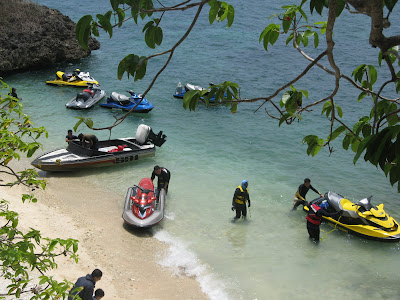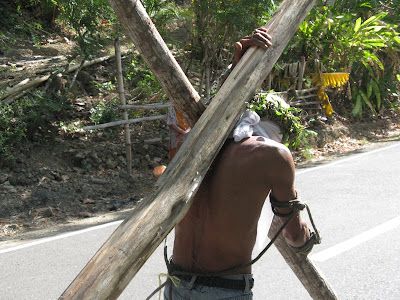Under the primordial Ilonggo concept of the “dungan,” life is seen as a constant battle for ascendancy between and among people of varying levels of “dungan.” This is why we Ilonggos have a term – “naunahan dungan” – to describe this constant, everyday clash between embodied spirits. This belief in the “dungan” is further illustrated in our belief in “usog” wherein an adult causes a newly-born infant to get sick because an adult’s fully-developed “dungan” supposedly overwhelms a baby’s still weak “dungan.” Thus, to prevent “usog,” old folks believe that parents should apply a dab of their saliva on the forehead of their baby.
While the concept of the “dungan” is easily defined, the concept of the “dunganon nga tawo” escapes simple characterization because it changes thru time and place. In the pre-Spanish days for example, the datu and the babaylan were the epitomes of the “dunganon nga tawo.” The tribal chieftain, with his wisdom, courage and luck in battle, symbolized mastery of the temporal world while the babaylan was worshiped for his/her mastery over the unseen, spiritual world. During the Spanish period, the friar replaced the datu and the babaylan as the “dunganon nga tawo” in Philippine society. But while the Spanish friar dominated and influenced both the temporal and spiritual affairs of their Philippine colony, a few Indios of indomitable spirit and of very strong “dungan” dared challenge Spanish hegemony over our islands. Thus, common bandits and millenarian cultists (like Papa Isio of Mt. Kanlaon for instance) were regarded, in the eyes of the common tao at that time, also as “mga dunganon nga tawo.” In present-day Philippine society, the concept of the “dunganon nga tawo” has morphed into something less visceral. For example, people today admire “moral” courage more than “physical” courage, luck in business and success in one’s chosen profession more than independent-mindedness or rebelliousness against established authority. While our present-day concept of the “dunganon nga tawo” may change thru time, suffice it to say that the typical Ilonggo instinctively knows a “dunganon nga tawo” when he sees one.
Understanding the twin concepts of “dungan” and the “dunganon nga tawo” is very important if we want to understand why Filipinos vote the way they do. During the previous 2007 elections for example, many were surprised when Magdalo rebel Antonio Trillanes IV won as senator despite the fact the he was in jail and had limited campaign funds. But if viewed from this perspective, Trillanes fits the traditional mold of the “dunganon nga tawo” – a fearless and heroic young man who dared to challenge a corrupt government – and this I believe is the primary reason why Filipinos voted for him in the last elections.
This is why I believe Secretary Raul Gonzalez Sr. will win as mayor in the coming elections because, notwithstanding his advanced age, everyone in














